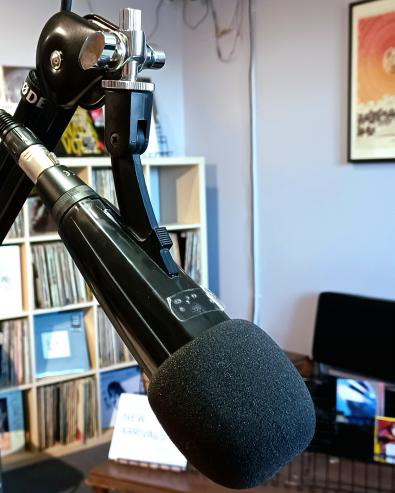As the tuition hikes loom over anglophone universities, student media hope they stay afloat.
Student media organizations across the city are exploring new funding alternatives.
After speaking with student media institutions across the city, the consensus is clear: fee-levies are the main source of revenue for most outlets, and these fee-levies have not increased since the early 2010s. Fee-levies are a small amount of money, typically between a couple cents to dollars, which students pay per course credit that fund student groups and associations.
CKUT, McGill University’s radio station, just finished its week-long annual funding drive last month and reached its fundraising goal of $50,000. It was a bittersweet celebration though.
“$50,000 doesn’t even cover our rent per year of this building alone,” said Madeline Lines, CKUT’s funding and outreach coordinator.
The radio station is facing financial difficulties with a growing deficit. If the station does not find new sources for revenue, it will have to shut down in the next two years, Lines said.
“We hit a wall,” Lines said. “We’re in this tricky situation, where it is a bit of a last chance for us, our whole organization could go under.”
Over half of CKUT’s revenues are from fee levies—students pay a small fee for every course credit—which has not increased in the past 10 years. “Think about how much a sandwich cost in 2012 and how much it costs today,” Lines said. “There’s a huge difference.”

The McGill Daily is also facing financial uncertainty. Their coordinator, Olivia Shan, said that the paper’s financial situation is “really nerve-racking.”
She said that with the money they collect from fee-levies and advertising, they can barely pay for printing and staff honorariums—editors are paid $250 per month although they work around 15 hours per week.
Both student-run organizations are also anticipating a drop in revenues because of the tuition hikes announced by the provincial government last fall, which Shan said will cause a drop in enrollment. As of December of last year, McGill University has already seen a drop of 20 per cent.
Concordia too has observed a 30 per cent enrollment drop, as of December 2023. Therefore, if student publications cannot rely on fee-levies, they must look elsewhere.
Concordia’s radio station, CJLO, has a balanced budget, but the team is looking to diversify its revenue in anticipation of the tuition hikes. Allison O’Reilly, the station manager, said that they expect to see their revenue drop by 15 to 20 per cent next fall because of the tuition increase.
“We are going to put more effort into fundraising,” said the programming director, Cameron McIntyre. “We want to establish ourselves as an institution that is less reliant on fee levies.”
He said that the radio station will focus on collecting more money during their annual funding drive to compensate for the revenue losses they expect in the coming years.
O’Reilly added that CJLO understands the economic burden that university students are facing as a result of the hikes, which is why the station will now turn towards its listeners and the Montreal community at large for financial support.
French-speaking universities are also experiencing a drop in enrollment.
Étienne Dubuc, the general director of CISM, the Université de Montréal’s radio station, said they made $20,000 less last year than they usually do because of dwindling enrollment.
“Cutting back on expenses is starting to be quite unfeasible,” he said. “We’re rolling at a minimum to [produce] something that’s welcoming and fun.”
He explained that if CISM were to cut staff’s hours it would diminish the services and support offered to volunteers who want to get involved in the station.
As advertising revenues shrink and fee-levies remain unmoved, Dubuc is considering setting up a subscription program: listeners can make a pledge to CISM, which would give them exclusive access to content and to their favourite shows.
Back at McGill, Lines said that CKUT is a voice for underrepresented communities and advocates for social change and justice. “I think that that doesn’t always align with McGill’s investors’ interests or opinions,” she said.
Shan shared a similar sentiment, saying that the McGill Daily is “pretty much left with little support from the university.”
In the meantime, CKUT is reaching out to the Montreal community for donations to stay afloat.




